Meet 5 IAS Officers Generating Jobs For The Poor During The COVID-19 Crisis
“As the economy starts opening up again, we will see a lot of people looking for work. But they are primarily looking to the government to provide jobs since the private sector is not in a position to help them out.”
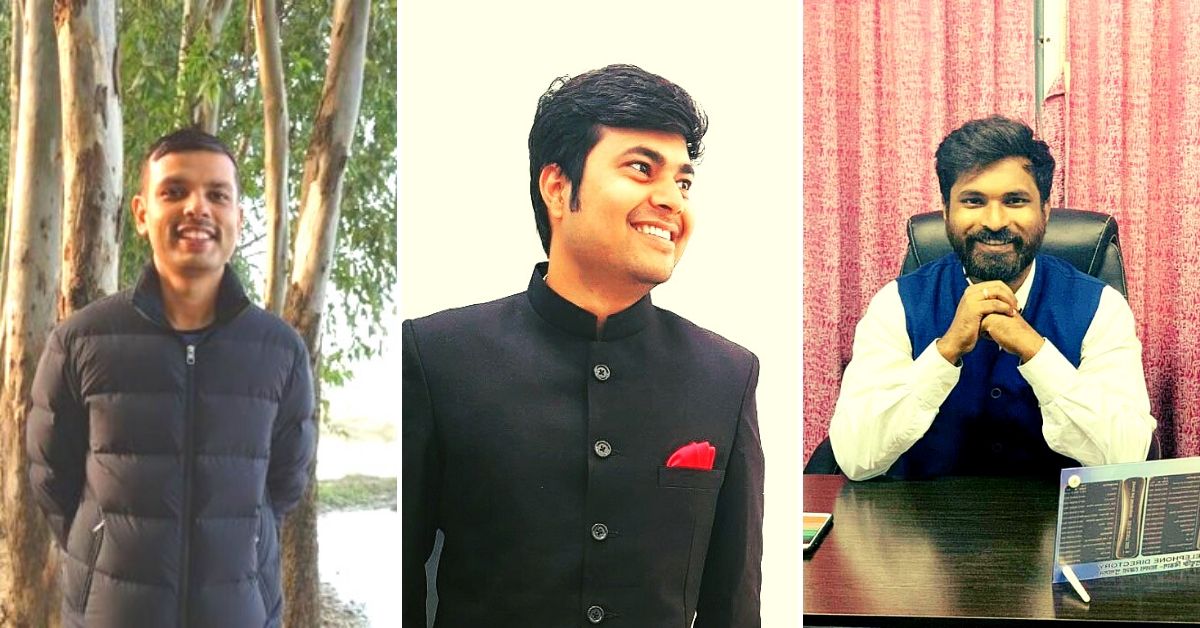
The slowdown in various sectors of the economy and the consequent rise in unemployment levels are two of the biggest concerns emerging from the coronavirus-induced lockdown. According to the Centre for Monitoring Indian Economy (CMIE), in April 2020, the unemployment rate in India had risen to 23.5%, with 122 million workers losing their jobs.
In the week ending on 21 June, however, CMIE reported that the rate has returned to pre-lockdown levels of 8.5%.
One reason for this is the implementation of government-sponsored jobs schemes like MGNREGA in the rural sector, in addition to the sowing of Kharif crops. Also, assisting this drop are Indian Administrative Service (IAS) officers at the district level, who have come up with various initiatives to provide jobs to their constituents.
While things start normalising and people start going back to their pre-lockdown routines — we still need to continue helping and reaching out. Join The Better India’s “BETTER TOGETHER” initiative. Help wage earners on a daily basis, help migrant workers reach home safely, and help frontline workers get access to essentials.
Unable to view the above button? Click here
Naveen Kumar Chandra, Assistant Collector, Malda district, West Bengal
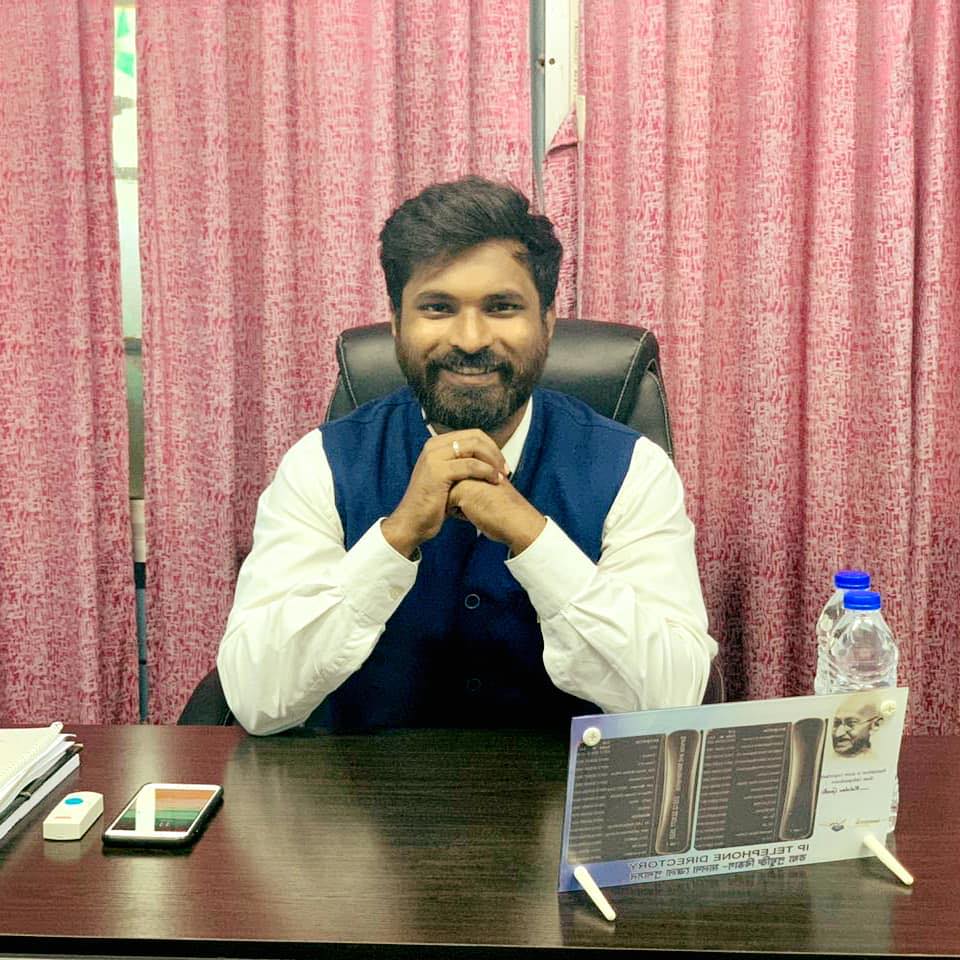
“Our primary responsibility is to ensure that the pandemic is contained. As the economy starts opening up again, we will see a lot of people looking for jobs. But the onus is on the government since the private sector is not in a position to help them out. Besides the schemes we have already in place, we are always on the lookout for innovative ideas to offer sustainable livelihood opportunities that can extend well beyond the lockdown,” says Naveen.
It was Kartik, a contract employee in his office working as a data entry operator, who first approached him in October 2019 seeking a more sustainable mode of living. Naveen was aware of Kartik’s talent for crafting handicraft products, so with a little bit of push, he got him to start making quality handmade bamboo water bottles in February 2020.
Upon seeing the quality of Kartik’s work, the Malda district administration helped him procure the necessary machinery and helped him set up a small workshop, where he began training 30 women from a self-help group (SHG) by May.
With bamboo locally available, procuring raw material has not been a problem. Kartik now has an additional source of income, as do the women who have not only crafted bamboo items like water bottles and other cutlery, but are also using machinery to scale up their production. While they have begun to sell these products locally, these products will be available for sale on e-commerce platforms like Amazon by the end of this month.
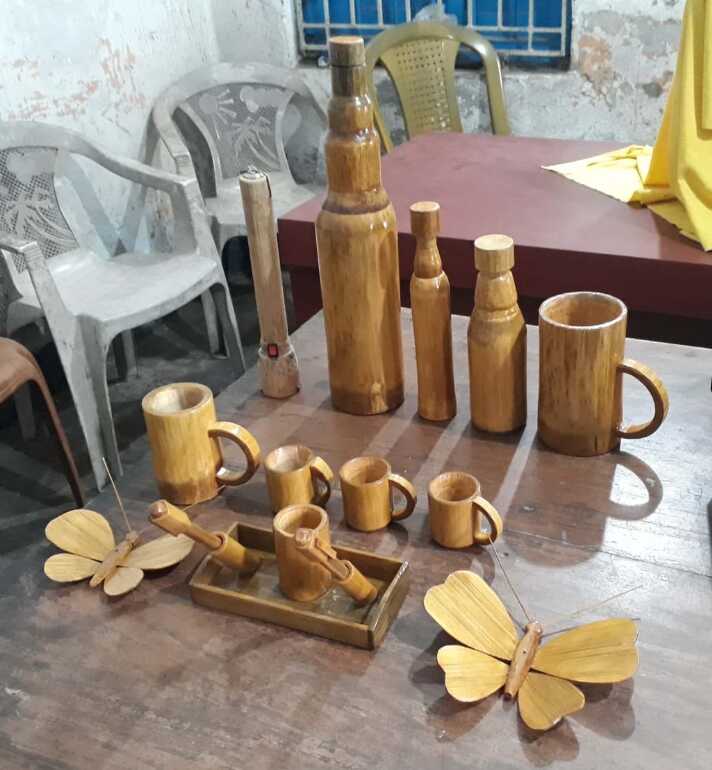
Prince Dhawan, Deputy Commissioner, Lohit district, Arunachal Pradesh
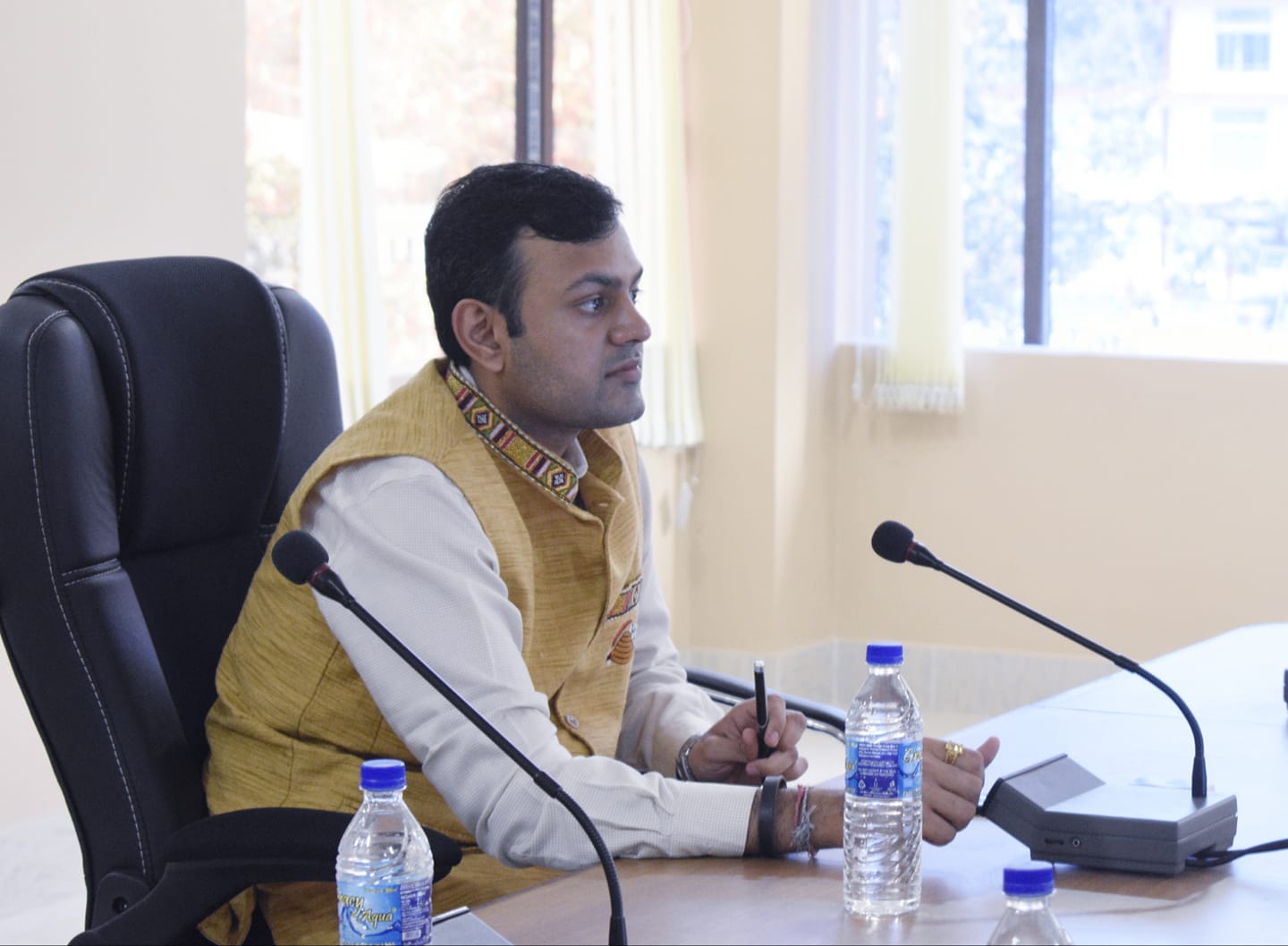
In an interesting turn of events, many of the migrant labour residing in Lohit district have not gone back home. Why? Well, it’s because the district administration not only took care of them with rations and supplies when the lockdown was imposed, but offered them jobs when restrictions were lifted.
“Most of the labour working in Arunachal are from outside the state. We are engaging them in ongoing construction activities by tying up with the General Reserve Engineer Force (GREF), which works under the Border Roads Organisation (BRO), and other governmental executing agencies undertaking road construction in the state,” says Prince.
He claims that the administration has engaged around 350+ labourers so far. Additionally, since agricultural activities were permitted even before the lockdown was announced, the district administration is working with a Farmer Producer Organisation consisting of 150 farmers engaged in horticulture.
“We have distributed seedlings for areca nut, banana, black pepper, orange, turmeric, etc. We are giving these inputs to 150 farmers who own 1 hectare each. These farmers are engaging these labourers as well. We have also opened up avenues for employment in tea gardens in partnership with plantation owners. Workers have to pluck the tea leaves, among other labour-intensive tasks,” notes Prince.
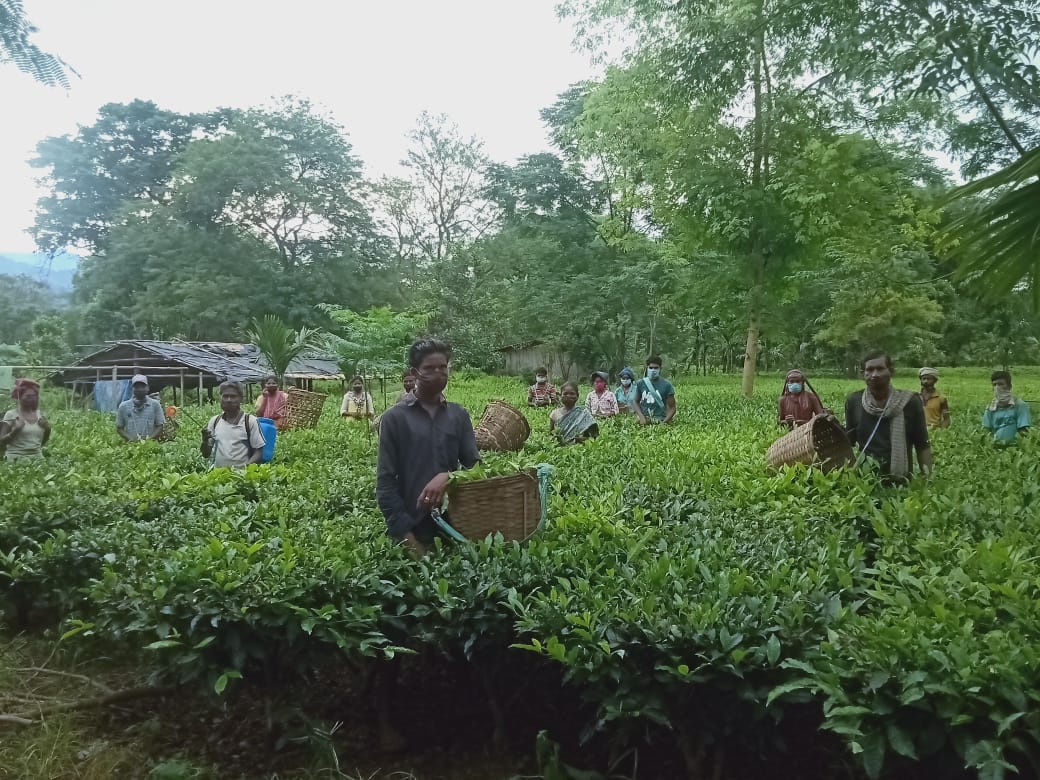
Many of the labourers returning back to Lohit district are finding jobs in these avenues. Managing this influx hasn’t been a problem for the administration since they have proper protocols in place in the event locals want to return. The administration is testing each and every person entering, and if they test negative, it lets them join these work activities.
District Magistrate Dr Adarsh Singh, Barabanki District, Uttar Pradesh
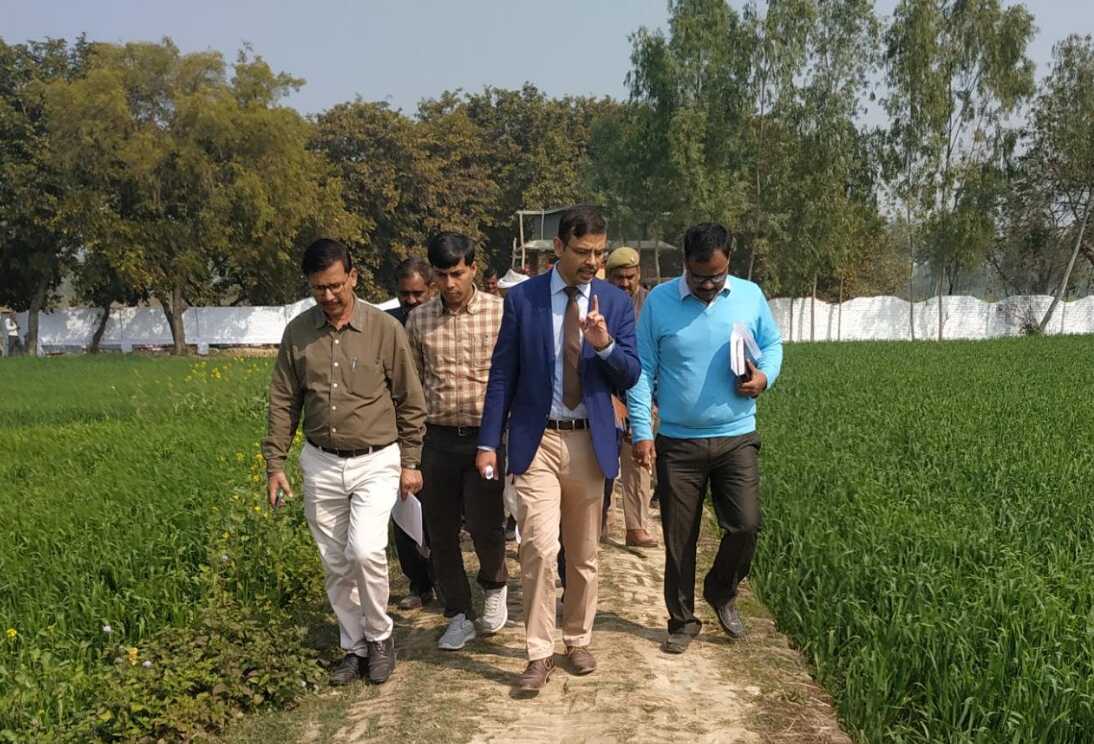
Back in April, close to 800 villagers in Barabanki district had lost their jobs thanks to the Coronavirus pandemic. But District Magistrate Dr. Adarsh Singh had other ideas. Instead of letting them suffer, he initiated a river restoration project in his district under NREGA.
The river in question is the Kalyani, which empties itself in the Gomti. For the first phase of the project, which sought to restore more than a 2.6 km stretch in Mavaiya village, more than Rs 59 lakh was allocated. The other segment up for restoration is a 1.5 km stretch in a neighbouring village, Haidergarh, where work is ongoing.
Nearly 800 villagers who had lost their jobs or whose livelihoods had been affected due to the global pandemic, found employment under this river project.
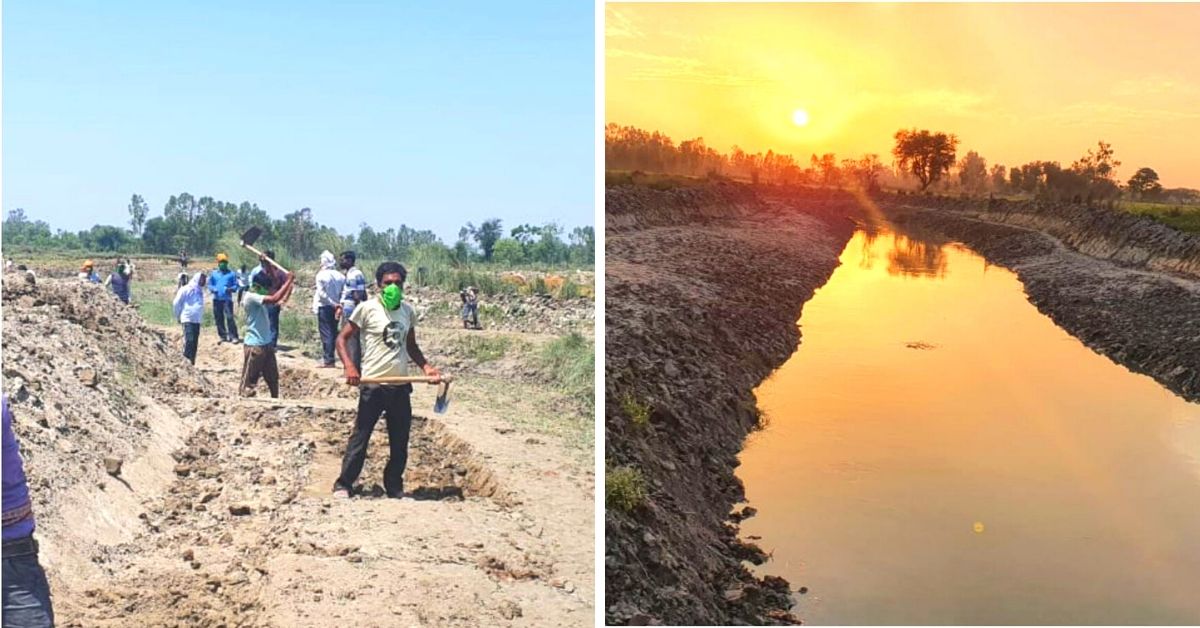
“Lockdown was, in a way, a boon in disguise for us. When we learnt about the plight of daily wage earners and how their livelihoods were in danger, we thought of employing them to solve the two problems..,Since the first phase of our project was successful, we plan to expand it to other villages as the Kalyani river is 170 km long. Now, that we have the required manpower, skills, and knowledge on how to go about it, we will replicate the model in other villages post-monsoon,” he said in an earlier conversation with The Better India.
Devansh Yadav, Deputy Commissioner, Changlang District, Arunachal Pradesh

Working alongside the North Eastern Region Community Resource Management Project (NERCORMP), a project of the North East Council, Collector Devansh Yadav has empowered local self help groups (SHGs) to start endeavours like sanitary pad making unit and a bamboo furniture unit.
One SHG running the sanitary pad making unit in Bordumsa Circle currently employs about 10 women, but with capacity augmentation they will be able to employ at least another 20 more. Their sanitary pads have been distributed to quarantine centres. So far, nearly Rs 3,50,000 worth of sanitary pads have been sold.
“There was another group in Bordumsa that was very interested in making bamboo furniture. In February, we put them in touch with NABARD, which trained them. By the end of March, their training had finished, following which the administration placed an order for furniture, and gave them the equipment to make it. Last week, they delivered two sofa sets, study lamps, tables, and other office stationery items like pen holders for Rs 43,000 (including Rs 30,000 for two sofa sets),” he says.
The 12 people employed in this SHG are making sofa sets, plates, office stationery items, cups, tables, study lamps, water jugs and various household items made of cured bamboo. The unit is currently tying up with local shopkeepers and selling their produce to locals.
“We also have a plastic shredder machine, where we have employed five people. The shredded plastic is being sold to National Highways and Infrastructure Development Corporation (NHIDCL) for road construction. Under NABARD, a rural haat is also being constructed in Diyun. Women will be involved in selling products,” he says.
Meanwhile, the state government, in partnership with NERCORMP, is trying to mobilize people into cluster farming. In every MLA constituency, there are two-three clusters, and within them, the SHGs will be producing their farm produce in bulk.
The state government is also offering agriculture input support to these SHGs. Ten such food processing units are being set up across the district and will be run by SHGS only, thus generating additional employment. Produce will be sold in bulk and also some of it will be processed so that the price the farmer fetches will increase.
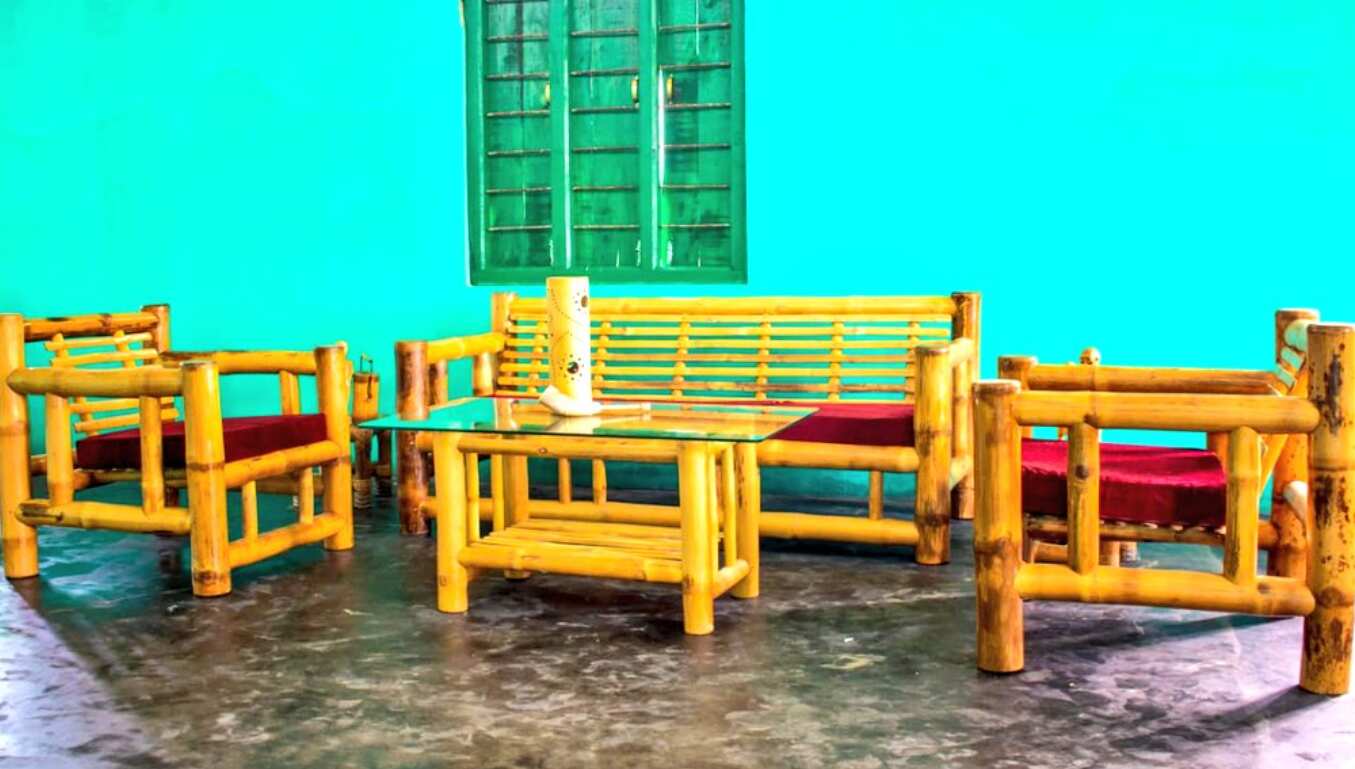
Since migrant labourers have started coming back (around 3500 from areas outside the Northeast and around 5000 from other Northeast states), the Changlang district administration embarked on a labour survey to learn about the skill sets they possess. The plan is to integrate returning migrants into these projects.
Arvind Singh, Chief Development Officer, Lakhimpur Kheri, Uttar Pradesh
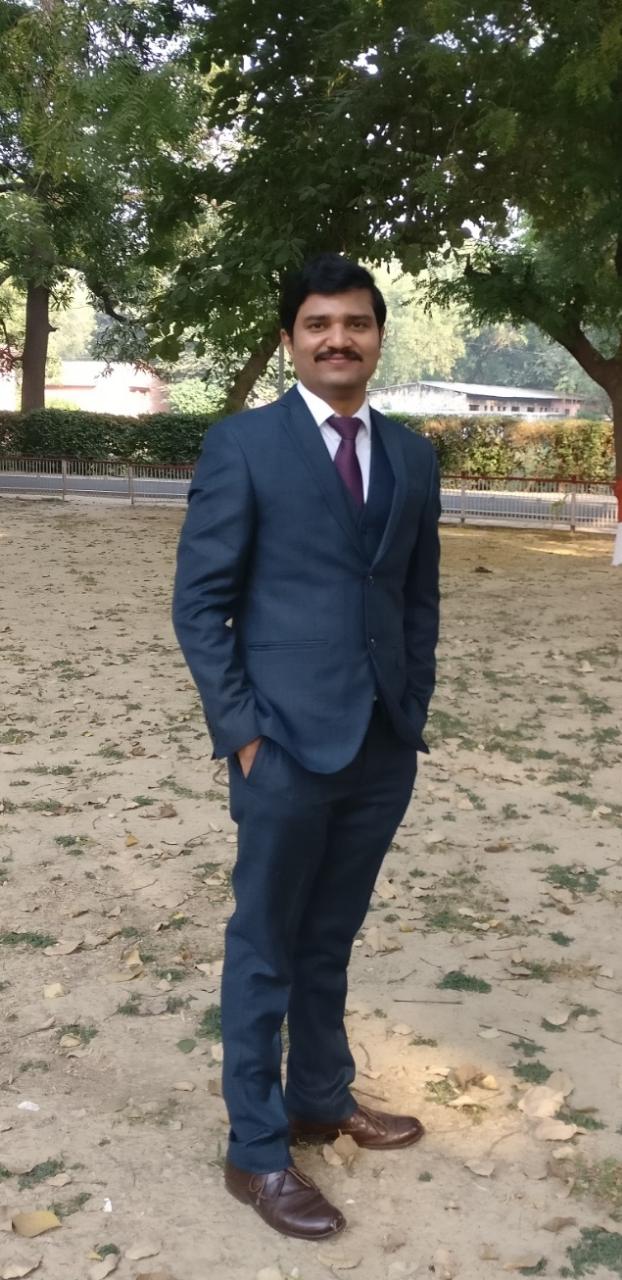
Under the guidance of IAS officer Arvind Singh, rural women in Lakhimpur Kheri have delivered global standard PPE kits in bulk.
How did he do it?
“Sitting down with his team, Singh started cold calling suppliers to procure raw materials as soon as possible. His team laid unmitigated focus on quality, design, process and, of course, capacity-building of the women involved in the initiative which was named Operation Kabach…Once the raw materials were secured, the women were meticulously trained in designing the kits, comprising polypropylene coveralls, goggles, face shields, headgears, masks, gloves and shoe covers,” notes this report in The Better India.
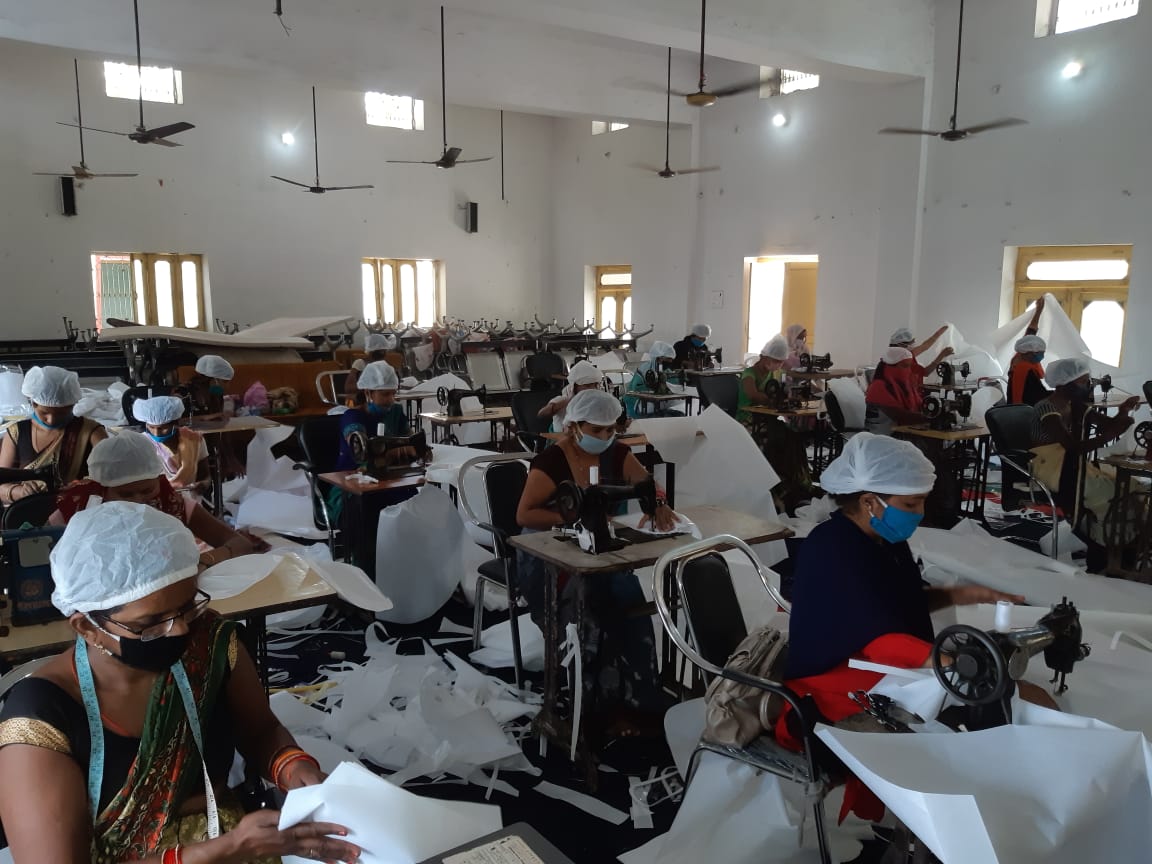
The Northern Commands Army Base hospital in Lucknow has ordered 2000 PPE kits from Operation Kabach. Meanwhile, the Lucknow Cantonment of 41st Infantry Brigade has ordered 52 kits, and the Kumaon Indore division has ordered 20 kits while the Sashastra Seema Bal ordered 30 PPE kits. Most of these orders have already been delivered.
He has also embarked on ‘Operation Chaturbhuj’, a road construction project aimed at helping unemployed rural folks find employment. “The project under Mahatma Gandhi National Rural Employment Guarantee Act (MNREGA) is aimed at providing jobs to thousands of job-seekers, mitigate disputes after demarcations of roads, provide road connectivity after ‘chakbandi’ and boost environment through plantation on either side of roads,” Singh told the Hindustan Times.
(Edited by Gayatri Mishra)
Like this story? Or have something to share? Write to us: [email protected], or connect with us on Facebook and Twitter.

Similar Story

Ex-IRS Officer’s Free UPSC CSE Course Eliminates Need for Paid Coaching
An IRS officer-turned-educator, Ravi Kapoor has mentored thousands of UPSC aspirants for free. Taking upon his 10 years of bureaucratic experience and masters in clinical psychology, Ravi’s approach to UPSC mentorship has always kept mental fitness and motivation in focus.
Read more >
If you found our stories insightful, informative, or even just enjoyable, we invite you to consider making a voluntary payment to support the work we do at The Better India. Your contribution helps us continue producing quality content that educates, inspires, and drives positive change.
Choose one of the payment options below for your contribution-
By paying for the stories you value, you directly contribute to sustaining our efforts focused on making a difference in the world. Together, let's ensure that impactful stories continue to be told and shared, enriching lives and communities alike.
Thank you for your support. Here are some frequently asked questions you might find helpful to know why you are contributing?


This story made me
-
97
-
121
-
89
-
167












